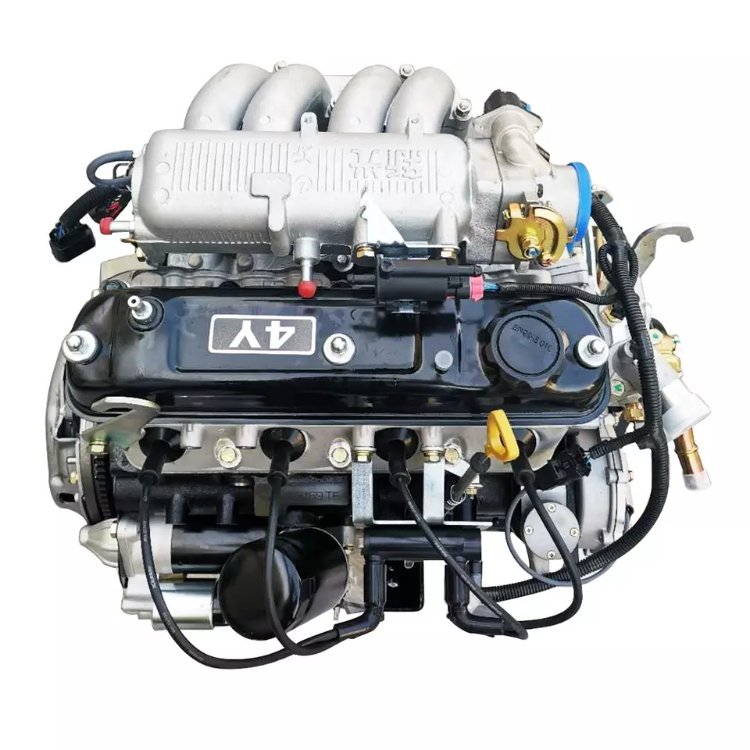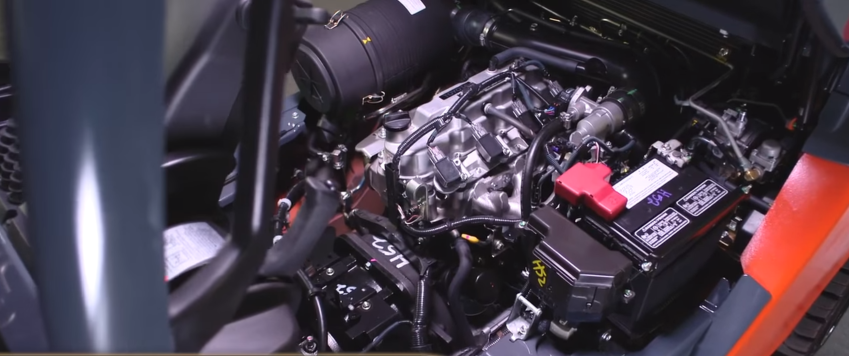Understanding the Mechanics Behind the 4Y Engine’s Power and Durability
Understanding the Mechanics Behind the 4Y Engine’s Power and Durability
Blog Article
Exploring the Numerous Sorts Of Engine: Which One Fits Your Demands?
In the pursuit to determine the most suitable engine type for your specific requirements, it is essential to assess the unique qualities and benefits of each option available. Internal burning engines remain to control because of their dependability, while electric engines are acquiring traction for their sustainability. Crossbreed engines supply a flexible compromise, and diesel engines stand apart for their power in demanding applications. Additionally, different gas engines present innovative solutions, albeit with particular restrictions. Comprehending your priorities will certainly be crucial in this decision-making process, bring about an expedition of elements that may affect your option.

Internal Burning Engines
Interior burning engines (ICEs) are the backbone of modern-day transport, powering a vast selection of cars from cars to aircrafts. These engines operate on the concept of converting gas into mechanical power through a collection of regulated explosions within a burning chamber. The most typical kinds of ICEs include fuel engines, diesel engines, and rotating engines, each designed to satisfy details performance and performance needs.
Gas engines typically use trigger ignition, while diesel engines count on compression ignition, resulting in unique distinctions in gas efficiency and power outcome (4y engine). Rotating engines, or Wankel engines, offer a small style and smooth procedure, yet are less typically made use of in mainstream applications
ICEs have actually gone through substantial advancements in innovation, consisting of the intro of turbocharging and fuel injection systems, which improve general performance and efficiency. Despite their effectiveness enhancements, ICEs encounter raising scrutiny due to their environmental effect, especially pertaining to greenhouse gas exhausts. As the automotive industry develops, the future of ICEs stays a topic of dispute, stabilizing efficiency, effectiveness, and ecological considerations. Nonetheless, they remain to play an important function in worldwide transportation facilities.
Electric Engines
As problems concerning environmental sustainability and nonrenewable fuel source dependency expand, electric engines have become an engaging alternative to inner burning engines. These engines use electrical motors powered by batteries or gas cells, offering a cleaner and more reliable motive powers.
One of the key advantages of electric engines is their minimized discharges. Unlike traditional engines that melt nonrenewable fuel sources, electrical engines create zero tailpipe exhausts, substantially lowering air contamination and adding to boosted public health and wellness. Additionally, the effectiveness of electric motors commonly surpasses that of inner combustion engines, transforming a higher percentage of energy from the power resource into functional energy for activity.
Electric engines are likewise significant for their silent operation, making them ideal for city environments. 4y engine. The simpleness of their design causes less moving components, which can cause decreased maintenance prices and enhanced integrity over time
Nevertheless, obstacles stay, consisting of battery manufacturing impacts, billing framework, and range restrictions. Regardless of these hurdles, the growing investment in electrical lorry technology and sustainable power sources points towards an appealing future for electrical engines, placed to play an important duty in the change toward sustainable transportation.
Hybrid Engines
Blending the benefits of both electrical and typical interior combustion engines, hybrid engines represent a flexible remedy in the pursuit for efficient and sustainable transportation. These engines combine a gasoline or diesel engine with an electric motor, enabling for enhanced fuel effectiveness and minimized discharges contrasted to traditional automobiles.
Crossbreed engines run in a number of settings, using the electric motor for low-speed driving and the interior combustion engine for higher rates or when even more power is required. This vibrant procedure not only improves fuel economy but also adds to a smoother driving experience. Regenerative stopping is an additional important attribute, catching energy usually lost during stopping and rerouting it to charge the battery.

As consumers increasingly focus on eco-friendliness, hybrid engines attract attention as a sensible option, offering an efficient balance of efficiency, efficiency, and ecological responsibility. This flexibility makes them suitable for city commuting and long-distance traveling alike.
Diesel Engines
Effectiveness and power are hallmarks of diesel motor, which have actually long been favored for their effectiveness and fuel economic climate. These engines run on the principle of compression ignition, where air is compressed to a heat before gas is injected, igniting it without the demand for spark plugs. This procedure makes it possible for diesel engines to attain higher thermal effectiveness contrasted to gasoline engines, equating right into better fuel gas mileage and reduced carbon dioxide discharges.
Diesel engines are particularly fit for sturdy applications such as vehicles, buses, and industrial machinery, where torque and sturdiness are extremely important. Their design generally includes helpful resources more powerful components to endure the higher stress produced throughout procedure, leading to longer life span and lowered upkeep prices.

Alternate Fuel Engines
While diesel engines have lengthy controlled the landscape of heavy-duty source of power, different fuel engines are gaining grip as feasible options for an official source extra lasting future. These engines utilize a selection of fuels, such as pressed all-natural gas (CNG), propane, ethanol, and hydrogen, intending to decrease greenhouse gas exhausts and reliance on nonrenewable fuel sources.
One considerable advantage of different fuel engines is their possible to lower carbon impacts. For instance, CNG engines emit less pollutants contrasted to traditional diesel motor, making them suitable for metropolitan transportation systems and fleets seeking to boost air quality. Ethanol, originated from biomass, not just decreases exhausts but likewise sustains farming economic climates.
Hydrogen gas cells stand for an advanced growth find out this here in this world, offering zero-emission power with a chemical response in between hydrogen and oxygen. Challenges such as facilities advancement and manufacturing prices continue to be obstacles to widespread adoption.
Final Thought
In final thought, picking the ideal engine kind necessitates careful consideration of particular requirements and preferences. Interior combustion engines use dependability, while electrical engines focus on sustainability and minimized upkeep. Crossbreed engines integrate the benefits of both, improving effectiveness, whereas diesel engines supply remarkable power and torque for durable applications. Alternate fuel engines present environment-friendly choices, albeit with prospective facilities challenges. Ultimately, a comprehensive assessment of driving behaviors and ecological worths will help with an informed decision pertaining to engine option.
Hybrid engines provide a versatile concession, and diesel engines stand out for their power in demanding applications. The most common kinds of ICEs include gasoline engines, diesel engines, and rotating engines, each developed to meet details efficiency and efficiency demands.
Unlike typical engines that shed fossil fuels, electrical engines produce absolutely no tailpipe discharges, considerably lowering air contamination and contributing to enhanced public health.Crossbreed engines operate in numerous modes, making use of the electric motor for low-speed driving and the inner combustion engine for greater speeds or when even more power is needed. Hybrid engines incorporate the advantages of both, boosting effectiveness, whereas diesel engines give remarkable power and torque for sturdy applications.
Report this page